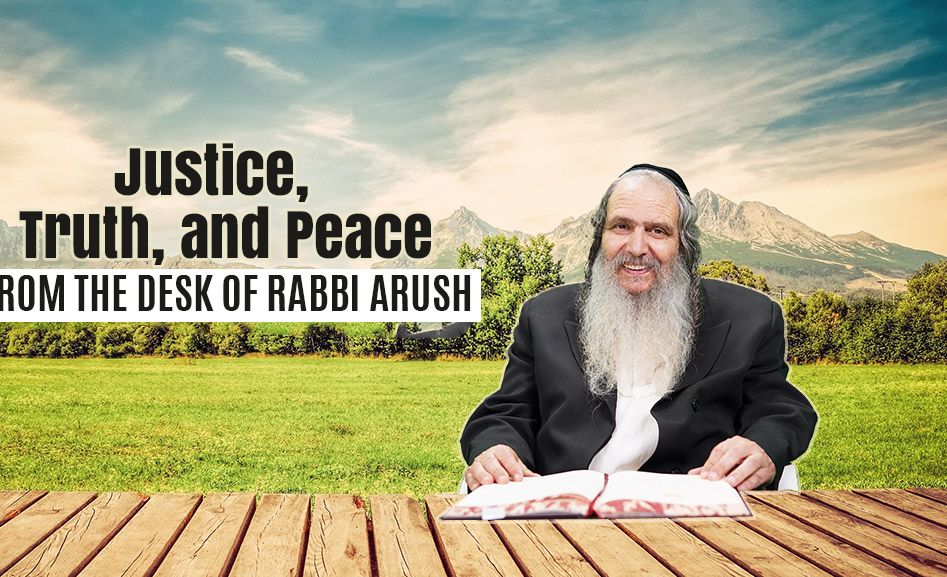
Choose Forgiveness
When I know I'm fighting a part of myself and not just fighting against my wife, I'm going to use every ounce of strength to enjoy my relationship with her.

The relationships we have with our spouses and children are the main ones we’re going to have on this planet, and how hard we push ourselves to improve them is how good most of us are going to feel about ourselves, and our lives. Most of us don’t have any idea of what we can do, or what’s really possible, particularly with our marital relationships. We get side-tracked by secular notions of marriage, and we lose sight of the fact that we are one body, one soul. Once I know I’m actually fighting for a part of myself, and not just fighting against my wife, I’m going to use every last ounce of strength to enjoy my relationship with her, even if she’s yelling and frowning at me.
If I’m trying my hardest because I’m looking for complements from my spouse about how altruistic and generous I am, I may not get them. But if I remember that I’m trying my hardest because that is what G-d wants me to do, then the spiritual credit I start to build up for myself in Heaven is unfathomable. And sooner or later, that spiritual credit will translate into big miracles and blessings in this material world, and one of the first places you’ll see the difference is in your marriage. The people who take this approach are going to have bliss in this world and the next. Those people are going to continue to push hard against the things that are difficult; they are going to do their best to be a giver, especially when they really want to take; and to trust G-d that He’s going to help them succeed, particularly when they want to do something for their husband or wife.
Most secular notions of relationships, and particularly the marriage relationship, revolve around some idea of “give and take”; or, “you scratch my back, I’ll scratch yours.” But Judaism has a different view of things. Judaism tells us that giving is a wonderful thing! Giving is a gift all by itself, which contains its own reward and payback. When we have this Jewish viewpoint firmly entrenched in our heads, then we can start to  see how it’s a wonderful thing when our spouse makes demands of us. Who else can they make demands of like that? They could go out in the middle of Times Square, and stomp their hands and feet, and shout until they are hoarse, and no-one’s going to pay attention to them – and if they do, it’s only because they think they are crazy!
see how it’s a wonderful thing when our spouse makes demands of us. Who else can they make demands of like that? They could go out in the middle of Times Square, and stomp their hands and feet, and shout until they are hoarse, and no-one’s going to pay attention to them – and if they do, it’s only because they think they are crazy!
It’s only when we get into the giving mode that we can create an environment where our spouses can feel truly at home, and act in accordance to how they are really feeling, without having to put on an act for us. They aren’t scared that we’re going to get angry or retaliate, because they know that we know it’s all being spiritually orchestrated to help us work on our own character deficiencies. We stick with our humble, simple attitude that it’s all coming from G-d, and it’s all good, and by virtue of our emuna, G-d works miracles for us, and we achieve break through after break through, both in ourselves and in our interactions with other people.
This may sound like a tall order to many people, and it’s true that it requires a very big spiritual commitment to really get to know G-d, and to start seeing Him in every area of our lives. But really, what is the alternative? If our kids or spouses are acting up, and giving us a hard time, what other options are on the table?
Recently, I spoke to a wife who was up in arms about her husband, because he’d started doing a few things again that he hasn’t done for many, many years. Who knows what happened, why he’s slacked off in the areas he has, or why he’s gone back to doing things that aren’t good for him. We are all humans, not angels, and all of us, even the best of us, will sometimes fall down and make some big mistakes. But now, the wife is calling her husband names, and is making all sorts of threats about getting divorced if he doesn’t quit his bad habits and get back into line.
I know these people very well, and I can tell you straight out that neither of them is going anywhere, regardless of all the threats and noise about getting divorced. So now, they have two choices: either, they can stay together like this, fighting and accusing each other until they are blue in the face, until 120. Or, they can say: “Enough with the judgment and the moralistic outlook! We don’t live in a courtroom… I’m going to do my best to forgive and to work through this with my husband, as a team.”
Spiritually, the world is built on two pillars called “chesed” and “gevurah.” In a very simplistic description, “chesed” means loving-kindness and forgiveness, and “gevurah” means limitations and strength. The world needs both of these to survive and function. Each of us is an entire world; we also need kindness and strength in our lives and in our relationships – but the kindness has to be predominant. The kindness has to lead, and the severity has to take a back seat, and sometimes, it has to be an extremely far-back seat.
I can’t tell you how many children tell me that they avoid one parent and gravitate to the other, because that parent is a lover, not a lecturer, and they are willing to listen, so the child can really open up and let his hair down. That parent can take the child for a long walk, and have a heart-to-heart chat, and afterwards, the child’s mind is at ease, and he can go to sleep easily, having talked it out with someone who loves him, whatever he did. Love is spiritual, and as our Sages teach us, it “covers over” every sin. So that child goes to bed with this healing, forgiving love in his heart, and he feels wonderful.
What a blessing to have a parent who can turn their child’s depression around just with a smile and a few kind words. That child feels so special, so unique, and he’ll take that into his marriage when he grows up, and give it over to his children, in turn. The power of love is intangible. It can’t be understood or measured, and there are no scientific stats or concepts that can contain love. It’s beyond logic and understanding, and it’s what we need most of in this world.
Our religion is all about love; each commandment is training us to love in a different way, and to feel love in our heart and to avoid strife. How do we get to that ideal “loving” state? Let’s start by letting go and forgiving others every chance that we get.







Tell us what you think!
Thank you for your comment!
It will be published after approval by the Editor.